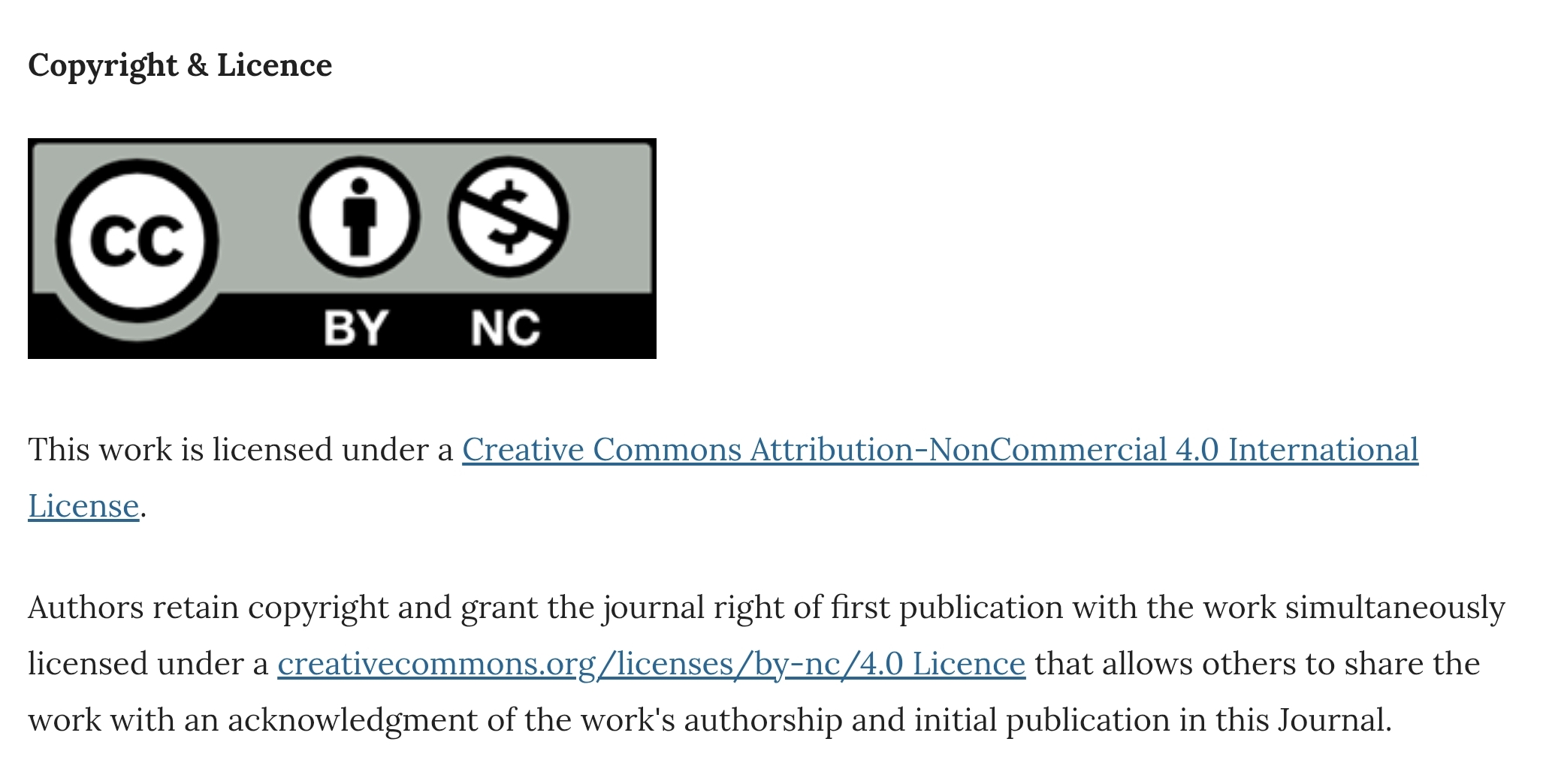Prevalence of internet addiction and its relationship with disordered eating among medical college students in south India: a cross-sectional study
DOI:
https://doi.org/10.30834/KJP.34.2.2021.284Keywords:
Body Mass Index, Feeding and Eating Disorders, Internet Addiction, Internet UsageAbstract
Background: The easy availability of various gadgets with the provision of faster internet at affordable prices has exponentially increased internet usage in the past few years. This study aimed to estimate the prevalence of internet addiction and describe its association with disordered eating in medical college students. Methods: This cross-sectional study was conducted on 300 medical college students in south India. After obtaining ethical clearance and informed consent, students were given a questionnaire containing sociodemographic variables, Young's Internet Addiction Test (IAT), and Eating Attitudes Test questionnaires (EAT). Descriptive analysis was carried out by mean and standard deviation for quantitative variables, frequency, and proportion for categorical variables. Categorical outcomes were compared between study groups using the chi-square test. Univariate binary logistic regression analysis was performed to test the association between the variables. Results: The prevalence of internet addiction was 46.7% in this study. Disordered eating was found to be 12.3% in medical students. Internet addiction was observed to be more in the younger age group. (P <0.001) A significant association was obtained between internet addiction and disordered eating. (P <0.05). Conclusion: Nearly half of the medical students in this study were addicted to the internet, and disordered eating was also high among medical students. A closer look into the aspects like internet addiction and eating disorders is required, as these may silently impact the life and productivity of the budding doctors.
Downloads
References
Young KS. Internet addiction: A new clinical phenomenon and its consequences. Am Behav Sci. 2004;48(4):402–15.
Kocsis RN. Book Review: Diagnostic and Statistical Manual of Mental Disorders: Fifth Edition (DSM-5). Int J Offender Ther Comp Criminol. 2013;57(12):1546–8.
Joseph J, Varghese A, VR V, Dhandapani M, Grover S, Sharma S, et al. Prevalence of internet addiction among college students in the Indian setting: a systematic review and meta-analysis. Gen Psychiatry. 2021;34(4):e100496.
Kim Y, Park JY, Kim SB, Jung IK, Lim YS, Kim JH. The effects of Internet addiction on the lifestyle and dietary behaviour of Korean adolescents. Nutr Res Pract. 2010;4(1):51–7.
Lau T, Wu AM, Gross L, Cheng M, Lau M. Is Internet addiction transitory or persistent? Incidence and prospective predictors of remission of Internet addiction among Chinese secondary school students. Addict Behav. 2017;74:55–62.
Soule LC, Shell LW, Kleen BA. Exploring Internet addiction: Demographic characteristics and stereotypes of heavy Internet users. J Comput Inf Syst. 2003;44(1):64–73.
Hinojo F, Aznar I, Cáceres M, Trujillo J, Romero J. Problematic Internet use as a predictor of eating disorders in students: A systematic review and meta-analysis study. Nutrients. 2019;11(9):1–11.
Tao ZL, Liu Y. Is there a relationship between Internet dependence and eating disorders? A comparison study of Internet dependents and non-Internet dependents. Eat Weight Disord. 2009;14(2–3):e77-83.
Stice E. Risk and maintenance factors for eating pathology: A meta-analytic review. Psychol Bull. 2002;128(5):825–48.
Alpaslan AH, Koçak U, Avci K, Uzel Ta? H. The association between internet addiction and disordered eating attitudes among Turkish high school students. Eat Weight Disord. 2015;20(4):441–8.
Daniel WW, Cross CL. Determination of sample size for estimating proportions. Biostat A Found Anal Heal Sci. 1999;8:189–90.
Alavi S, Eslami M, Meracy M, Najafi M, Jannatifard F, Rezapour H. Psychometric properties of Young internet addiction test. J Behav Sci. 2010;4(10):7–8.
Garner DM, Bohr Y, Garfinkel PE. The Eating Attitudes Test: Psychometric Features and Clinical Correlates. Psychol Med. 1982;12(4):871–8.
Sava??r I, Erol N. Eating Attitude Test: anorexia nervosa symptom index. Turkish J Psychol. 1989;7:19–25.
BDSS Corp. Released 2020. coGuide Statistics software, Version 1.0, India: BDSS corp. Available from: https://www.coguide.in. [Last accessed on 2021 Sep 16].
Chaudhari B, Menon P, Saldanha D, Tewari A, Bhattacharya L. Internet addiction and its determinants among medical students. Ind Psychiatry J. 2015;24(2):158.
Sharma A, Sahu R, Kasar P, Sharma R. Internet addiction among professional courses students: A study from central India. Int J Med Sci Public Heal. 2014;3(9):1069.
Zhang MWB, Lim RBC, Lee C, Ho RCM. Prevalence of Internet Addiction in Medical Students: a Meta-analysis. Acad Psychiatry. 2018;42(1):88–93.
Hudson JI, Hiripi E, Pope HG, Kessler RC. The Prevalence and Correlates of Eating Disorders in the National Comorbidity Survey Replication. Biol Psychiatry. 2007;61(3):348–58.
Ni X, Yan H, Chen S LZ. Factors influencing internet addiction in a sample of freshmen university students in China. Cyberpsychol Behav. 2009;12(3):327–30.
Aghasi M, Matinfar A, Golzarand M, Salari-Moghaddam A, Ebrahimpour-Koujan S. Internet Use in Relation to Overweight and Obesity: A Systematic Review and Meta-Analysis of Cross-Sectional Studies. Adv Nutr. 2020;11(2):349–56.
Kumar S, Kumar A, Badiyani B, Singh SK, Gupta A, Ismail MB. Relationship of internet addiction with depression and academic performance in Indian dental students. Clujul Med. 2018;91(3):300–6.
Mboya IB, Leyaro BJ, Kongo A, Mkombe C, Kyando E, George J. Internet addiction and associated factors among medical and allied health sciences students in northern Tanzania: A cross-sectional study. BMC Psychol. 2020;8(1):1–8.
An, Nitin, Thomas C, Jain PA, Bhat A, Thomas C, et al. Internet use behaviors, internet addiction and psychological distress among medical college students: A multi centre study from South India. Asian J Psychiatr. 2018;37(5):71–7.
Downloads
Published
How to Cite
Issue
Section
License
Copyright (c) 2021 Kerala Journal of Psychiatry

This work is licensed under a Creative Commons Attribution-NonCommercial 4.0 International License.











